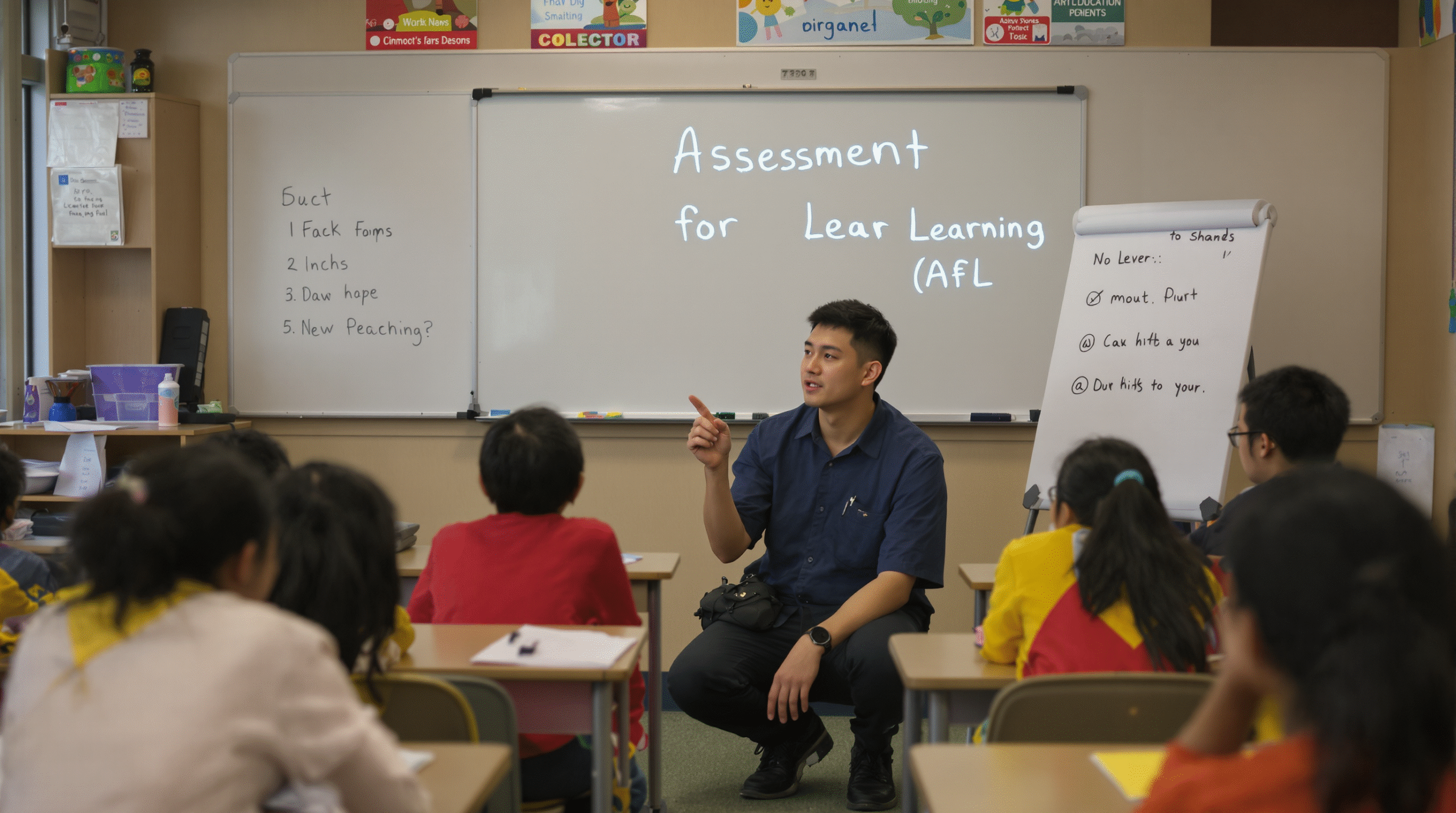
Assessment for Learning
What it is:
Assessment for Learning (AfL) is the practice of integrating assessment seamlessly into the teaching and learning process with the primary goal of supporting and enhancing student learning, rather than merely measuring outcomes at the end (Assessment of Learning). AfL involves continuously gathering information about student understanding and progress throughout a course.
Faculty then use this information to adjust their teaching strategies and, crucially, to provide students with timely, specific, constructive, and actionable feedback. This feedback helps students understand their strengths, identify areas for improvement, and guides them on how to move forward. AfL also encourages students to engage in self-assessment and peer assessment.
This aligns perfectly with the KKU Learning Paradigm’s shift in assessment criteria from “Assessment of learning” to “Assessment for learning.” It also supports the continuous improvement loop inherent in quality assurance frameworks like AUN-QA.
How to implement it:
Implementing Assessment for Learning requires integrating assessment tools and techniques into classroom activities naturally. Examples include using questioning techniques during class to check understanding, observing student participation and engagement in activities, giving short quizzes or assignments during the semester, utilizing technology for real-time feedback gathering (e.g., online polls, quizzes, or discussion forums), and incorporating presentations or group discussions where students demonstrate their understanding.
Faculty need to develop skills in providing quality feedback that is focused on the work or process (not the individual), clearly identifies what was done well and what needs improvement, and offers concrete suggestions for the next steps. Teaching students how to self-assess is also crucial, often by providing clear assessment criteria (rubrics) and guiding them in applying these criteria to their own work and that of their peers. Peer assessment is another valuable technique that provides students with diverse perspectives and reinforces their understanding of quality standards. AfL does not always require grading but must provide feedback that is valuable for student development.
Practical Tips for Implementation:
- Clarify Learning Goals: Ensure students clearly understand what they are expected to learn and the criteria for success for each activity and the course as a whole. Share rubrics and examples of strong work.
- Use Formative Assessment Tools: Employ a variety of low-stakes or un-graded assessments frequently throughout the course to check understanding (e.g., entry/exit tickets, quick polls, brief in-class activities).
- Provide Timely Feedback: Return assessed work or provide feedback as quickly as possible so students can use it to improve subsequent tasks.
- Focus on Specific and Actionable Feedback: Instead of general comments, provide detailed feedback that explains why something is correct or incorrect and offers concrete suggestions on how to improve.
- Teach Self and Peer Assessment: Explicitly teach students how to evaluate their own work and provide constructive feedback to peers using established criteria. Provide opportunities for practice.
- Follow Up on Feedback: Design opportunities for students to use the feedback they receive to revise their work or approach subsequent tasks.
- Utilize Technology for Efficiency: Use online tools for quizzes, assignment submission, and providing feedback to manage workload, especially in large classes.
- Create a Culture of Growth: Frame mistakes as learning opportunities and emphasize that assessment is a tool for improvement, not just evaluation.
Its value and benefits:
Assessment for Learning is highly valuable in driving KKU Education Transformation and developing graduates according to the university’s philosophy.
Strengthening “Wittaya” (Knowledge & Skills)
Students receive continuous feedback, allowing them to identify weaknesses and improve promptly. Self and peer assessment also enhance their understanding of success criteria and develop crucial self-evaluation skills.
Promoting “Jariya” (Ethics & Characters)
It cultivates responsibility for learning, continuous self-improvement, the ability to receive feedback, and constructive peer interaction. AfL promotes a growth mindset and dedication to self-development.
Sparking “Panya” (Wisdom)
AfL prompts students to reflect on their learning process. Quality feedback guides them in developing self-regulated learning, problem-solving, and critical thinking skills. This aligns with Education 4.0’s emphasis on lifelong learning and creativity.
AfL is a powerful tool for faculty to produce high-quality KKU graduates meeting the demands of modern society. It also addresses challenges like diverse student preparation by providing targeted support based on ongoing assessment data.
